
How to Store Beer: Storage Methods & Tips
How to store beer may depend on a few factors, such as the type of beer, the amount of alcohol and the pasteurization, among other things. When you reach for a cold beer, you want to be confident that it has been properly stored and will taste as fresh as when you first bought it.
Beverage centers and undercounter refrigerators are ideal appliances for storing beer, in addition to your standard kitchen refrigerator. Read on to learn more about how to properly store beer.


Does beer need to be refrigerated?
In general, beer is often best enjoyed when chilled. It tends to lose its flavor when kept at warm temperatures and can even become stale or “skunky” if exposed to sunlight or left to get too hot. Therefore, it's generally recommended to store beer in a cool, dark place away from temperature fluctuations and direct sunlight. This can help maximize the beer’s shelf life and keep it tasting fresh.
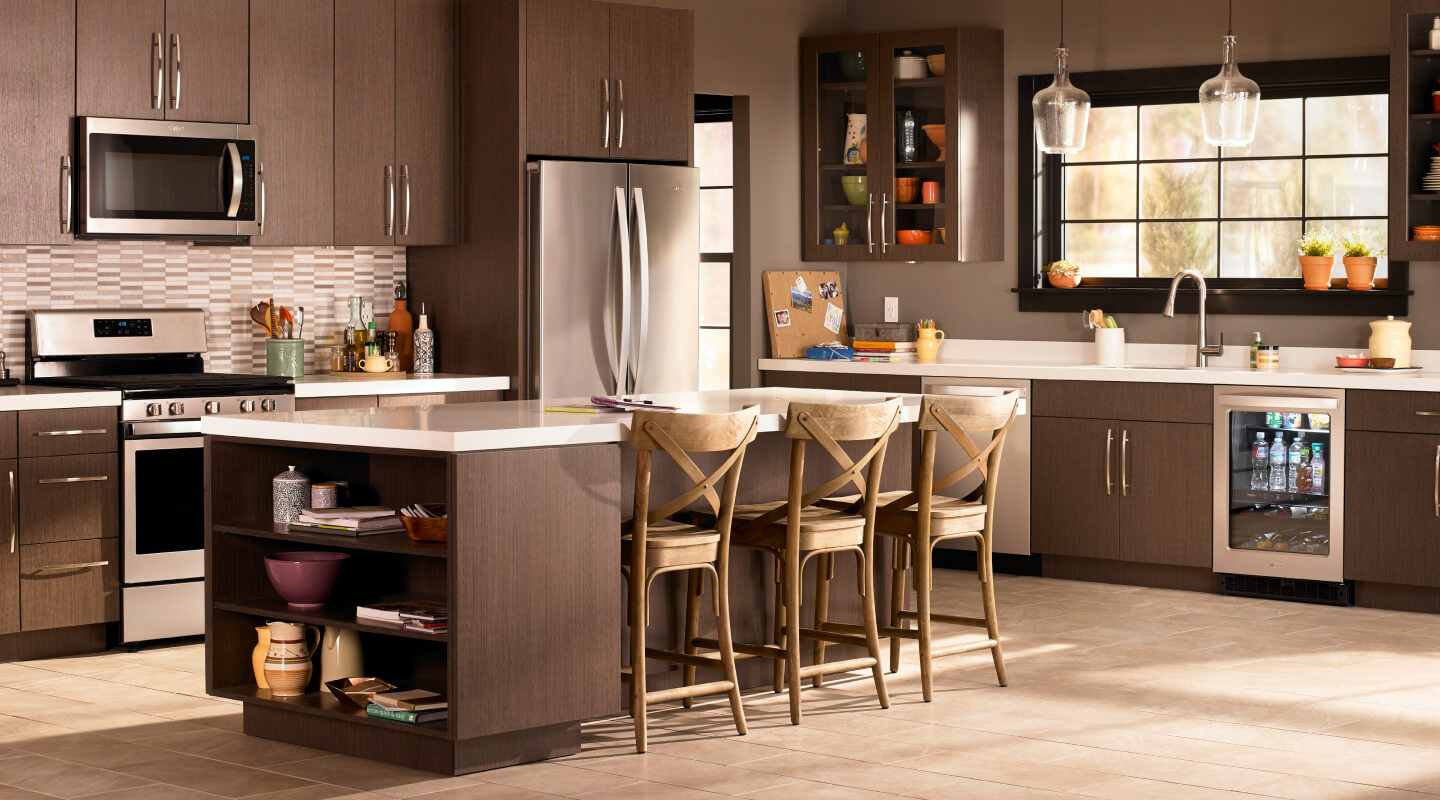
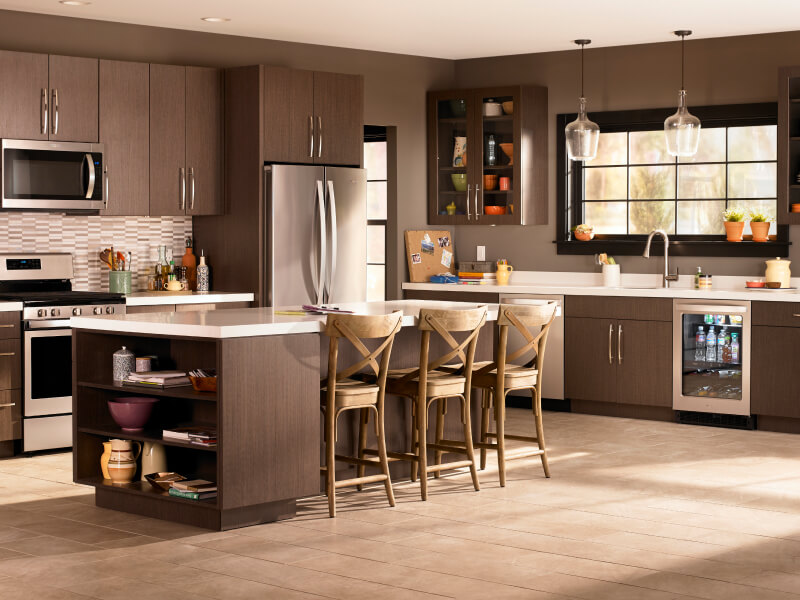
How to store different types of beer
Different types of beer require different storage temperatures. Check out the table below for more information about common beer types and their ideal temperatures, according to craftbeer.com.
| Beer Type | Ideal storage temperature |
|---|---|
| Pilsners and Lagers | 40 - 45° F |
| Wheat beers | 40 - 50° F |
| IPA's | 50 - 55° F |
| Porters and stouts | 45 - 55° F |
| Sours and bocks | 50 - 55° F |
| Barleywines and strong ales | 50 - 55° F |
Shop Whirlpool® Undercounter Refrigerators
Select Whirlpool® Undercounter Refrigerators come with Dual-Temperature Controlled Zones that customize up to two different temperatures to accommodate whatever beverages you're storing.
How to store different types of beer containers
How you store beer may also depend on its container. Beer can come in cans, bottles, growlers, kegs and corked bottles. Read on to learn more about storing beer in different types of containers.

How to store beer cans
Beer cans should typically be stored in a cool, dry place at the right temperature for their type, but always above freezing. Cans should usually be stored upright. If you plan to store beer long term, try to store it in a cool, dark place, upright and with minimal movement.

How to store beer bottles
Beer bottles can be stored much like cans, in a cool, dry place and in an upright position. Similar to cans, beer bottles should usually be kept in a dark place when storing long term. The brown glass of some beer bottles can help keep it fresh, as the dark color protects the beer from UV rays.

How to store beer growlers
Growlers are often made of brown glass, which can protect beer from UV rays better than clear glass. Be sure that your growler seals properly and store it in a cool place. Often beer stored in growlers may have a shorter shelf life than mass-produced beer because it will likely be unpasteurized.

How to store beer kegs
When storing beer kegs, keep the temperature as consistent as possible. Keep beer kegs stored in a dark place, such as in a basement, refrigerator or garage. Be sure that your kegs maintain a pressure of 10-12 psi.
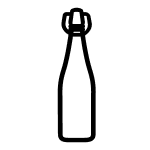
How to store corked beer
Corked beer is typically best stored upright. Corked beer may mature faster than other types of beer, so it is recommended to consume it within a year and a half of bottling.
Shop Whirlpool® Beverage Centers
Beverage centers such as this one from Whirlpool brand are a great way to control the temperature at which you store your beer, while keeping it organized. Select Whirlpool® Refrigerators also come with a can caddy, which can make storage much easier and free up space in your refrigerator for other items.
Beer storage tips
Whether you’re storing beer in your Whirlpool® Beverage Center or in your garage ahead of your next gathering, you want it to be fresh when you reach for it. Follow the tips below to help you maintain your beer’s freshness while you store it.
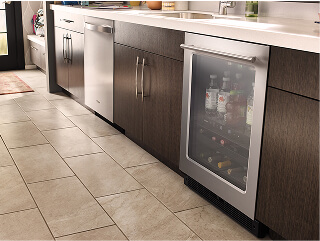
Looking for your next wine refrigerator?
How to store beer without a fridge
If you don’t have room in the refrigerator for your beer, you can store it in a cool, dark place, like a basement or garage, especially if you live in a cooler climate.
Store the beer away from sunlight and fluorescent light. Beer with a high alcohol-by-volume percentage typically has a longer shelf life and doesn't necessarily need to be refrigerated right away. If you leave your beer at room temperature, it can typically last awhile before it starts to lose flavor and freshness, depending on the type of beer and how it was bottled.
How pasteurization affects beer storage
Pasteurized beer generally has a longer shelf life than unpasteurized beer. Many craft beers are unpasteurized, while mass-market beers are often pasteurized. Pasteurized beer is typically best stored in optimal refrigerated conditions for no more than 300 days, while unpasteurized beer should usually be consumed within three months of the bottling date.
How to avoid beer skunking
Skunking is what occurs when beer reacts with light, causing the beer to have a foul odor and taste. Help avoid skunked beer by keeping it away from the light. Even a few minutes of direct sunlight exposure or artificial lighting can spoil the beer. Store your beer in dark brown bottles and in a dark, cool place to help keep it fresh.
At what temperature does beer freeze?
The temperature at which beer freezes can depend on the alcohol-by-volume percentage. Beer that is 5% alcohol by volume may freeze at about 27° F. Freezing and thawing beer can affect the taste and quality, changing the beer’s flavor profile and carbonation. Frozen beer can expand and break the container it’s bottled in.
Try to avoid leaving beer in extremely cold temperatures. If you must leave your beer in these conditions, use insulated bags to help prevent freezing. Select Whirlpool® Beverage Centers are equipped with a Temperature Sensor Alert that keeps items at their ideal temperature with an alert that lets you know if the temperature is rising or cold air is escaping through an open door.
Can beer be refrigerated twice?
In most cases, rechilling beer that has already been chilled may have little to no effect on the flavor of the beer. This is true as long as the beer has not been at a very low or high temperature for a prolonged period of time.
How to store beer after opening
Typically, the best way to store beer after opening is to reseal it with an airtight cap or stopper so you can reduce oxidation and the loss of carbonation. The length of time the beer was open before you resealed it can also affect its freshness.
How to store empty beer bottles
Empty bottles should be cleaned and air dried before they are put away. You can store them in crates, boxes or any other sturdy container you may have around the house. If you plan to use them again, consider storing them upside down. If you are not going to use them again, you can recycle them or repurpose them for storing other beverages.
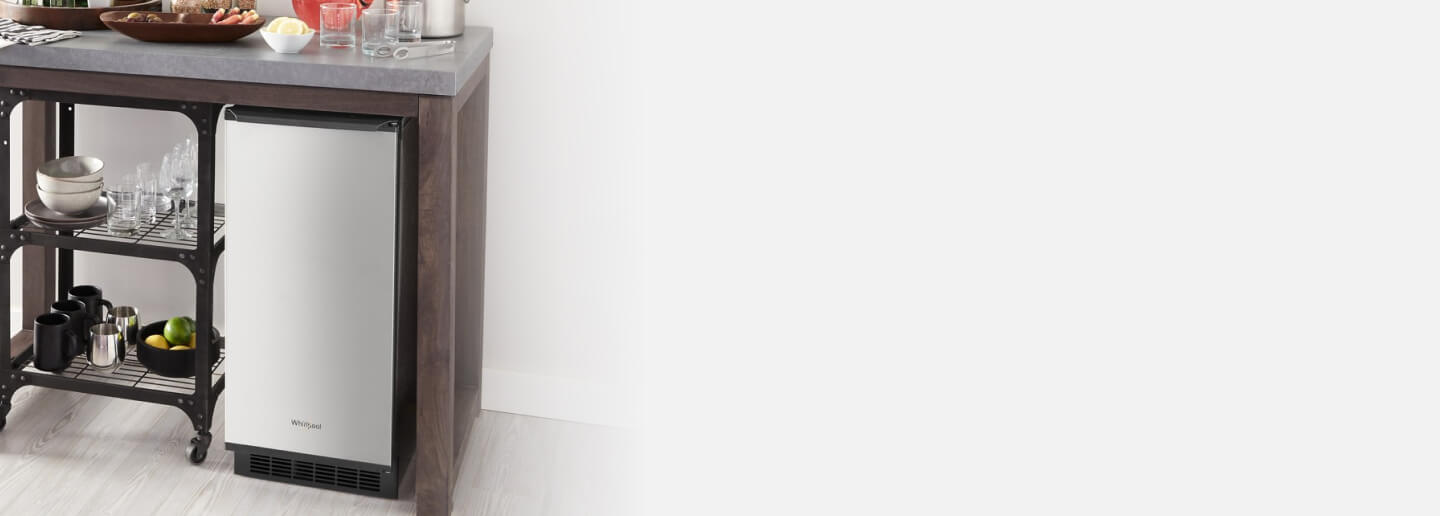
Ice Makers
Make it easy to entertain family and friends
Made to fit under your counter, Whirlpool® Ice Makers can hold 25 lbs. (11.3 kg) of cold, crisp ice
Explore Whirlpool® Refrigerators for storing your favorite beverages
Store your favorite beverages at their ideal temperature with a Whirlpool® Beverage Center or Whirlpool® Undercounter Refrigerator. With select models featuring LED interior lighting, precise temperature controls and sleek design, beverage centers and wine fridges can help you keep drinks cool and fresh, so you can entertain in style.
Was this article helpful? Pass it on
Discover more from Whirlpool brand


home heartbeat
Ready for more tips, home hacks and appliance guides?



